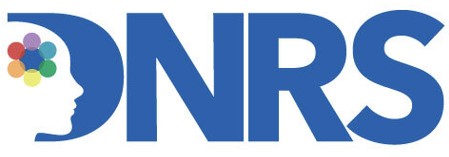Katje, a 49-year-old from the Netherlands, struggled with Multiple Chemical Sensitivity (MCS) for over a decade. After years of failed treatments, medical visits, and alternative therapies, she discovered the Dynamic Neural Retraining System (DNRS) program. Through structured brain retraining and group support, Katje gradually regained her health, resilience, and independence. Her story highlights the transformative potential of neuroplasticity-based programs for chronic illness recovery.
How Katje Overcame MCS and Reclaimed Her Life Through the DNRS Program
Early Struggles with Chronic Illness
Katje’s health challenges began in May 2008, shortly after purchasing an old house that required extensive renovation. She worked daily with a contractor for three months, exposing herself to high levels of chemicals. One day, after plastering a wall with pre-prepared materials, Katje became severely ill and was forced to flee the room.
From that moment, she began experiencing a wide range of debilitating symptoms. Despite continued efforts to live in the newly renovated house, her condition worsened. She eventually stopped visiting her general practitioner, who struggled to diagnose her condition. Standard medications offered little relief, and referrals to specialists including pulmonologists, dermatologists, and internists provided no answers.
Years of Searching for a Solution
Katje’s journey over the next several years involved numerous doctors, specialists, and alternative healers. She tried homeopathy, acupuncture, bioresonance, naturopathy, colon cleanses, spiritual healing, and various experimental treatments. Despite spending over €100,000 and moving between multiple homes, including temporary apartments and even a caravan, Katje’s symptoms persisted
Her life became defined by limitations: she could only spend a few minutes in her own home, struggled to sleep, and was unable to tolerate everyday environmental exposures like mold, pesticides, and chemicals. The psychological toll of living in constant illness was profound, leaving her feeling hopeless and trapped.
Discovery of the DNRS Program
In late 2014, Katje discovered the Dynamic Neural Retraining System (DNRS) through an online video. She was immediately drawn to the program, which explained the science behind limbic system dysfunction and provided a structured step-by-step brain retraining protocol.
The DNRS program emphasizes daily practice, neuroplasticity, and group support. Participants engage in one hour of exercises per day for six months, learning to retrain their brain to respond differently to triggers that previously caused illness.
Life-Changing Transformation
Katje committed fully to the DNRS program, participating in group sessions, online forums, and daily exercises for three and a half months. Within this period, she noticed dramatic improvements.
She no longer reacted to mold or chemicals in her environment.
Everyday exposures, such as flowers, newspapers, asphalt, and household cleaning products, no longer made her ill.
She regained the ability to sleep and live comfortably in her own home.
Her overall quality of life improved, giving her freedom, independence, and confidence.
Katje describes this transformation as a complete 180-degree shift: from a life constrained by illness to one of full participation and freedom. She emphasizes that the program requires discipline, commitment, and consistent practice, but the results can be life-changing.
Advice for Others
Katje encourages others with Multiple Chemical Sensitivity or limbic system-related chronic illnesses to consider the DNRS program. She stresses the importance of group support, daily practice, and following the structured protocol. In her experience, this approach was the only method that enabled her to fully recover and reclaim her life.
“From not being able to live to being able to do everything – this program gave me my life back,” Katje says.
Conclusion
Katje’s story is a powerful testament to the potential of neuroplasticity-based rehabilitation for chronic illness. Through determination, discipline, and the support of the DNRS program, she overcame years of suffering and regained her health. For anyone struggling with MCS or related conditions, her experience highlights that recovery is possible with the right tools and guidance.

